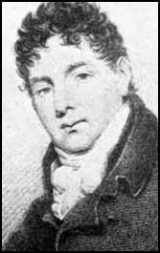
Hugh Hornby Birley
Encyclopedia

Manchester
Manchester is a city and metropolitan borough in Greater Manchester, England. According to the Office for National Statistics, the 2010 mid-year population estimate for Manchester was 498,800. Manchester lies within one of the UK's largest metropolitan areas, the metropolitan county of Greater...
Tory
Tory
Toryism is a traditionalist and conservative political philosophy which grew out of the Cavalier faction in the Wars of the Three Kingdoms. It is a prominent ideology in the politics of the United Kingdom, but also features in parts of The Commonwealth, particularly in Canada...
who is reputed to have led the fatal charge of the Manchester and Salford Yeomanry
Manchester and Salford Yeomanry
The Manchester and Salford Yeomanry cavalry was a short-lived yeomanry regiment formed in response to social unrest in northern England in 1817. The volunteer regiment became notorious for its involvement in the 1819 Peterloo Massacre, in which as many as 15 people were killed and 400–700 were...
at the Peterloo Massacre
Peterloo Massacre
The Peterloo Massacre occurred at St Peter's Field, Manchester, England, on 16 August 1819, when cavalry charged into a crowd of 60,000–80,000 that had gathered to demand the reform of parliamentary representation....
. He was also instrumental in founding the Royal Victoria Gallery of Practical Science in 1839. He was associated with the Royal Manchester Institution
Royal Manchester Institution
The Royal Manchester Institution was an English learned society founded on 1 October 1823 at a public meeting held in the Exchange Room by Manchester merchants, local artists and others keen to dispel the image of Manchester as a city lacking in culture and taste.The Institution was housed in a...
and a moving force in the establishment of Owens College. He was a director of the Manchester Gas Works and became a business associate of Charles Macintosh with the intention of putting the works' waste products to profitable use in the manufacture of waterproof fabrics.
His father was Richard Birley (1743–1812), merchant, who had four sons and four daughters. Hugh's brother, Joseph Burley (1782–1847), was the father of Hugh Birley
Hugh Birley
Hugh Birley was a British businessman and Conservative politician.Birley was born in Blackburn, Lancashire. Following education at Winchester School, he went to India, where he was the head of Birley, Corrie and Company, East India merchants...
who served as Member of Parliament
Member of Parliament
A Member of Parliament is a representative of the voters to a :parliament. In many countries with bicameral parliaments, the term applies specifically to members of the lower house, as upper houses often have a different title, such as senate, and thus also have different titles for its members,...
for Manchester
Manchester (UK Parliament constituency)
Manchester was a Parliamentary borough constituency in the county of Lancashire which was represented in the House of Commons of the Parliament of the United Kingdom. Its territory consisted of the city of Manchester.- History :...
from 1868 to 1883.

